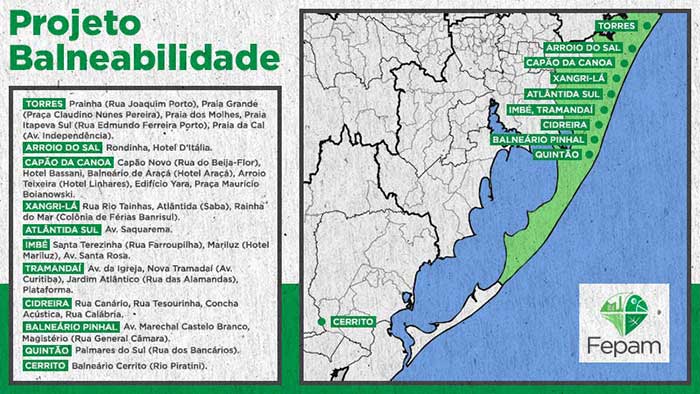
Rio Grande do Sul started the 2023-2024 Bathing Project with teams from the State Foundation for Environmental Protection (Fepam) collecting the samples. The action determines whether a place is suitable or unsuitable for bathing. In this edition, 91 points will be monitored, in 44 municipalities in Rio Grande do Sul, for 16 weeks, with support from Companhia Riograndense de Saneamento (Corsan) and the Pelotas Autonomous Sanitation Service (Sanep).
The publication of the bulletins will begin in the second half of December, together with the State government’s Operation Summer, and will continue until March 2024. The update will be made weekly on the Fepam website and social media, always on Fridays. Information signs will also be placed at monitored points.
On Tuesday (14/11), Fepam’s North Coast Regional Management traveled the beaches from Quintão to Torres to collect the first batch of materials for microbiological analysis by the foundation’s laboratory, in Porto Alegre. There are 31 salt water points in the region and an additional point on the South Coast, in Cerrito.
Corsan
Corsan will monitor 51 points in the interior of the State. These are rivers, lagoons, Laguna dos Patos and beaches on the Middle Coast and South Coast. Also a partner in the project, Sanep monitors bathing in the municipality of Pelotas, being responsible for collection and analysis at eight points, with Fepam participating in the disclosure.






